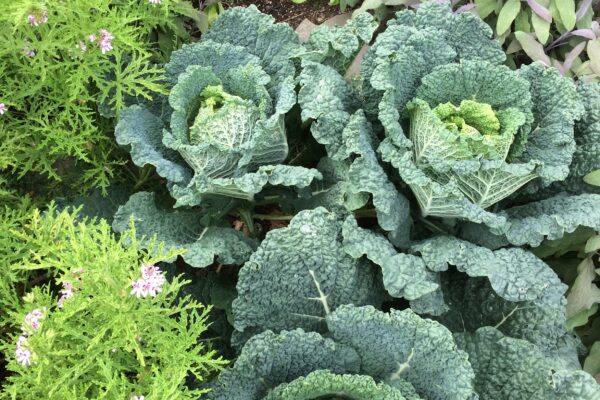Play
Winter Gardening Tips
It’s starting to feel like winter! With the forecast showing more rain and cooler temperatures to come, it’s time prepare your garden for the winter. Read on for some cold weather gardening tips and information about the next DIG IT class:
1) Join us Saturday, December 3rd from 1-2pm for the next class in the DIG IT series: Garden Holiday Harvest. We’ll be sharing our harvest, in the spirit of the holidays, and answering all your gardening questions for the new year. As always, the class is free, open to the public, and a great way to meet your neighbors – please stop by to learn, share ideas, and say hello!

2) If you haven’t done so already, it’s time to plant the last of your fall and winter vegetable starts. At the very latest, we recommend that you get your starts in the ground by the first week of November. They need the last remnants of sun and warm weather to get a boost of growth before winter settles in and your plants go dormant. Remember that plants don’t grow much in the winter months, even if we have unusually warm temperatures – since the days are shorter, there just isn’t enough sunlight for the plants to grow exponentially.

3) At this time of year, we also highly recommend that you plant starts over seeds. If the cool weather and rain continues, your soil will stay cool and not allow your seeds to germinate. This doesn’t mean that seeds are absolutely out of the question, but if you have limited space and want a greater chance of success, starts are the way to go!

4) If you’re looking to start a larger garden or to add to an existing space, the winter is an excellent time to plant fruit trees, ornamentals, and perennials (think lavender bushes or an apricot tree, pictured above). The colder weather won’t stress out your new plants like summer-time heat, plus there’s the added bonus of them enjoying the generous winter rains. Planting now is great for the environment, and will help save on your water bills!

5) Last but not least, we understand that the winter can be a busy time for all of us. If you’re going to be away a lot for the holidays or simply want a low-maintenance option for your raised beds or vegetable gardens, consider cover crops. Cover crops are a great way to replenish your soil after a long summer of producing delicious summer vegetables. Fava beans, for example, return nitrogen to your soil, while daikon radishes can break up clay and extract nutrients from deep down in the earth. What’s more, both favas (including their white flowers, pictured above) and daikon radishes are edible to boot!
That’s it for now! We hope to see you on Saturday, November 5th at 1pm for the next DIG IT class and please feel free to bring friends, family, and fellow garden enthusiasts.
Bay Meadows is a family-friendly neighborhood with lots of green space to enjoy all year long. Whether its growing your own vegetables in a gorgeous community garden with our resident gardener, playing a game of pick-up basketball after work, team building over bocce and beers, or checking out Dig it every first Saturday of the month. There’s no shortage of green space to explore.
PHOTO CREDITS HOMESTEAD DESIGN COLLECTIVE
